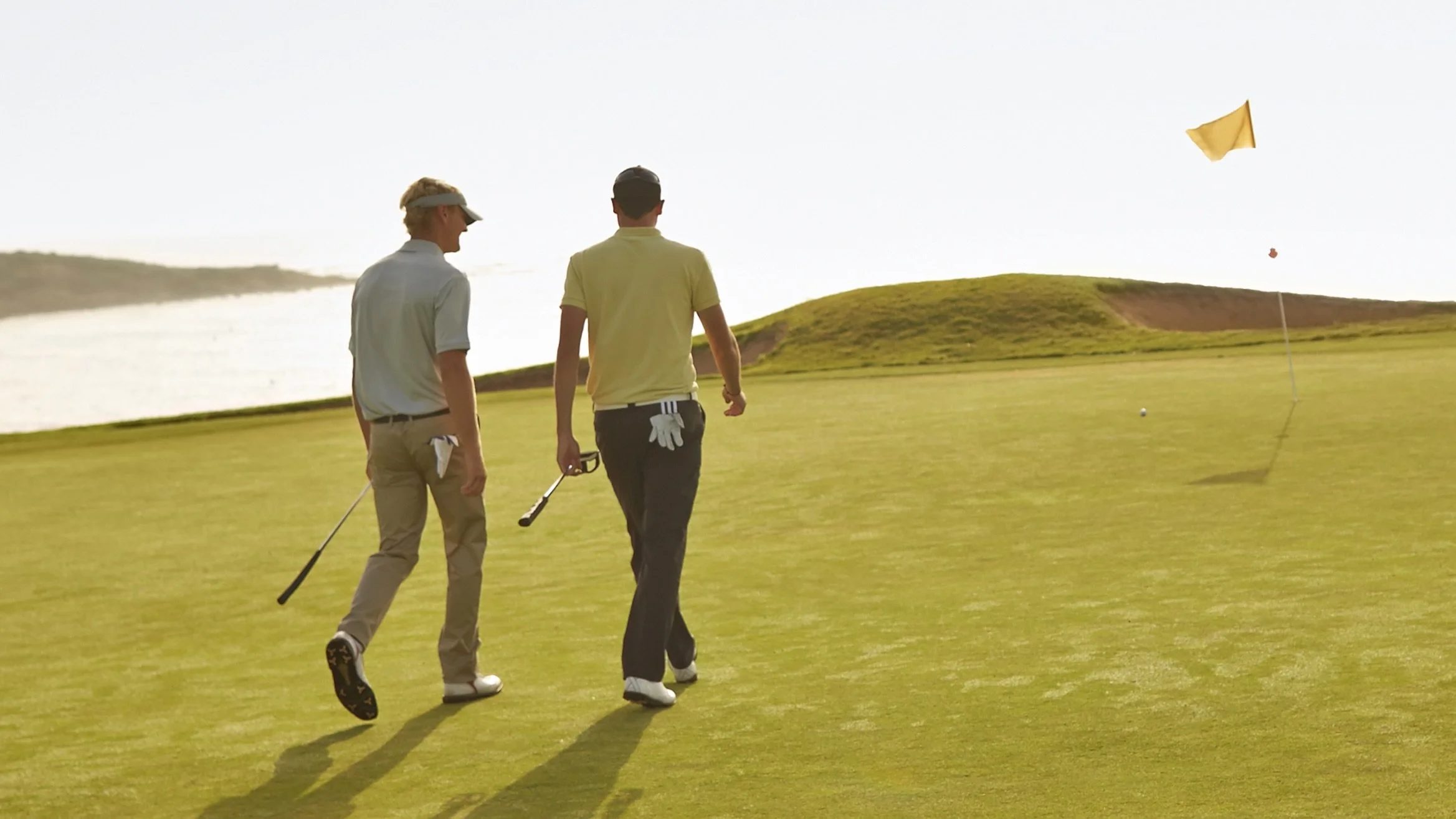recovery golf
I have had the privilege of playing golf with many of the men I’ve worked with as a recovery coach. In addition to the joy of playing, its’ been conducive to building relationships and providing time for meaningful conversations about recovery.
For some, the golf course was a place to continue their drinking and drug use at the expense of their game. Others stopped playing altogether to spend more time with their substance use disorder. Either way, playing golf clean and sober was a revelation for those men and women.. It proved to them that they could play better golf and have more fun than they ever imagined.
We know the game of golf can be a powerful tool for self reflection and positive change. A welcome alternative to the isolation, anxiety and depression felt in early recovery. Golf is a perfect opportunity to spend time outdoors and experience the joy of nature and the camaraderie of others.
I don't teach the physical fundamentals of the game or work with beginners. I teach recovery golf using mindfulness principals to bring positive changes to your golf and to your life.
MINDFULNESS COACHING
“The game of golf is 90% mental and 10% physical.” Jack Nicklaus
> Be Prepared. Arrive 30 - 45 minutes early to be ready to play your best golf..
> Set your intention. Have goals for the day before you start playing.
> Clear your mind of any distractions. Be present, play from a state of confidence.
> Visualize your swing from start to finish; literally stepping into your minds’ video as you hit the shot. Relax.
> Planning and commitment. Strategize where you want your shot to land in order to get the outcome you want.
> Play one hole at a time. I always set my intention to make par or better on every hole.
> Acceptance. Mentally step away from mishits and focus your attention on your next best shot.
> Patience. Don’t let waiting interfere with the flow of your game, stay present.
> Short game. The most mentally demanding place on the golf course. Practice, focus, patience, confidence, visualization, touch.
> Gratitude. Be grateful for the time you spend doing something you love.
> Community. Golf is a shared experience with others and an opportunity to make new friends.
> Self awareness. Golf courses are great places to experience a connection with the overpowering scope and profound beauty of nature.
If you want to play better golf and gain new insights into life’s challenges, mindfulness just might be the answer.
BIO
My Life in Recovery
I'm a recovering person with thirteen years of continuous sobriety. For the last seven years I have worked as a recovery coach for successful men, many of whom played golf. This is where the concept of “recovery golf” began to take shape, eventually becoming the core of my work.
I have had a mindfulness practice for nearly my entire adult life. I have participated in silent retreats and mindfulness workshops. Recently, I earned my M.B.S.R. mindfulness certification based on the ground breaking work of Jon Kabat Zinn at the University of Massachusetts.
I’m an avid golfer, Certified Recovery Coach (CCAR) Interventionist (CAI, CEI), and Life Coach (CLC). I have worked primarily with men from concierge level treatment centers.
I don't teach the physical fundamentals of the game. I teach mindfulness golf using mindfulness principals to create positive changes in your golf and in your life.
WILL BUCKLEY MINDFULNESS COACH


